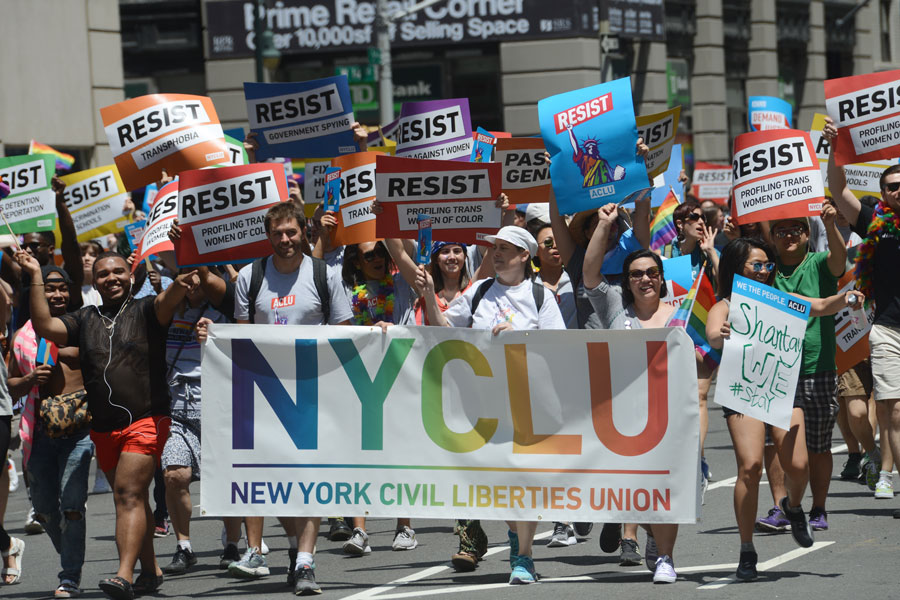
MASSAPEQUA, NY -Civil rights advocates have filed a lawsuit against Nassau County, challenging its February agreement with U.S. Immigration and Customs Enforcement (ICE) under Section 287(g). This pact authorizes ten county detectives to perform immigration enforcement duties typically handled by federal agents.
The suit, brought by the New York Civil Liberties Union on behalf of local residents, the Diocese of Long Island, and immigrant advocacy groups, claims the agreement violates New York state law, risks racial profiling, and undermines trust between law enforcement and immigrant communities. It highlights concerns that allowing local police to check immigration status could deter crime reporting and help-seeking among immigrants – who make up over 22 percent of Nassau’s population.
The agreement places county detectives under ICE supervision, gives them power to arrest individuals suspected of being in the U.S. illegally, and includes space for temporary detention in county facilities awaiting federal transfer.
Nassau County Executive Bruce Blakeman authorized the 287(g) agreement. His office has indicated confidence that it complies with legal requirements, although no official public comment has been made in response to the lawsuit.
Nassau joins Broome, Niagara, and Rensselaer counties in establishing similar pacts this year, despite New York’s strict limits on local-federal immigration collaboration.
The lawsuit remains pending. Its outcome could determine whether the agreement remains in force or violates state law.
Questions & Answers About Nassau County’s ICE Partnership Lawsuit
Q1: What is the 287(g) program?
A: Section 287(g) of the Immigration and Nationality Act allows local law enforcement to collaborate with U.S. Immigration and Customs Enforcement (ICE). Under this agreement, county officers can carry out certain immigration enforcement duties typically handled by federal agents.
Q2: Why is Nassau County being sued?
A: The lawsuit alleges that Nassau’s agreement with ICE violates New York State laws restricting local law enforcement from acting on federal immigration matters. The suit also argues the partnership could lead to racial profiling and discourage immigrants from engaging with local authorities.
Q3: Who filed the lawsuit?
A: The New York Civil Liberties Union (NYCLU), along with local residents, immigrant advocacy groups, and the Episcopal Diocese of Long Island.
Q4: What powers are Nassau County detectives being given under the agreement?
A: Ten detectives are reportedly authorized to investigate immigration status, make immigration-related arrests, and detain individuals on federal immigration violations inside county facilities.
Q5: How does New York State law limit cooperation with ICE?
A: New York laws generally prohibit law enforcement agencies from using local resources or personnel to enforce federal immigration laws unless required by a court order or state/federal law.
Q6: What are the critics’ concerns about the 287(g) agreement?
A: Critics warn the agreement may erode trust between immigrant communities and police, resulting in underreporting of crime and fewer people seeking help when needed. They also argue it could lead to unconstitutional detentions and civil rights violations.
Q7: Is Nassau County the only one with this type of partnership?
A: No. Broome, Niagara, and Rensselaer counties have entered into similar agreements with ICE in 2024 and 2025, despite state-level restrictions.
Q8: Has Nassau County responded to the lawsuit?
A: As of now, Nassau County officials have not issued a detailed public response to the legal challenge, though the County Executive’s office has previously defended the legality of the agreement.
Q9: What could happen if the lawsuit succeeds?
A: If the court finds the 287(g) agreement violates state law, Nassau County could be forced to terminate the partnership and cease immigration enforcement activities under the program.
Q10: How can residents follow updates on this case?
A: Updates will likely be reported through local news outlets, NYCLU publications, and official statements from the Nassau County government or court system.


